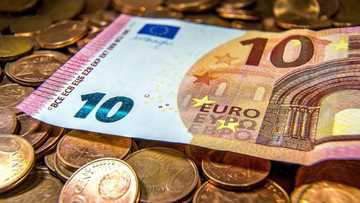Pakistan failing in every economic index: key survey

Source: AFP
PAY ATTENTION: Click “See First” under the “Following” tab to see Legit.ng News on your Facebook News Feed!
Pakistan failed to meet any economic growth targets for the fiscal year 2022-23, according to a key government report released Thursday -- a day before the new budget is to be presented to the national assembly.
GDP growth was a miserly 0.3 percent, while agriculture, industrial output, and exports all failed to meet their targets.
Pakistan's economy has been stricken by a balance-of-payments crisis as it attempts to service high levels of external debt, while months of political chaos have scared off potential foreign investment.
Inflation has rocketed, the rupee has plummeted and the country can no longer afford imports, causing a severe decline in industry.
The country was also ravaged by record monsoon floods last year that left almost a third of its territory underwater, laying waste to vast swathes of farmland and leaving tens of millions homeless.
Pakistan's standing on the global economic rank of nations has fallen from 24th in 2017 to 47th today, Finance Minister Ishaq Dar told a news briefing while releasing results of the survey.
PAY ATTENTION: Join Legit.ng Telegram channel! Never miss important updates!
"That says it all," he said.
The grim data gives the cash-strapped government little room to introduce populist vote-attracting measures in Friday's budget ahead of an election due to be held in October.
The government is also under enormous pressure from the International Monetary Fund (IMF) to tighten the purse strings to unlock another last tranche of a vital bailout package.
Under the IMF's terms, Pakistan had to do away with subsidies on energy and other sectors, allow the rupee to float against the US dollar, raise taxes and duties, and restrict imports.
"It was extremely challenging for the government to carry out such strict reforms and we had a political cost," Dar said.
"We have averted looming default for now."
Pakistan's key economic indicators for the year ending June 30, 2023, show economic growth declined to 0.29 percent against 6.1 percent a year earlier.
Agriculture, a key driver of the economy, grew just 1.55 percent, while the industrial sector showed negative growth of 2.94 percent.
"It was a year of force majeure," said Ahsan Iqbal, Pakistan's Planning Minister, adding that the floods had the key impact.
Pakistan is expected to set a growth target of 3.5 percent for the upcoming fiscal year, to be announced in the national budget on Friday.
The World Bank set a less-ambitious target of two percent in its latest Global Economic Prospects report issued earlier this week.
Source: AFP




